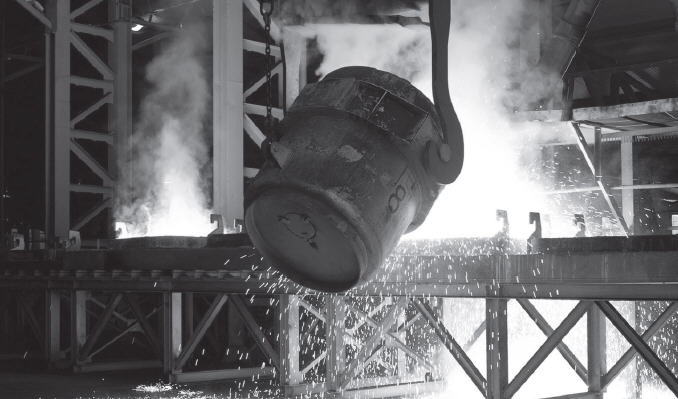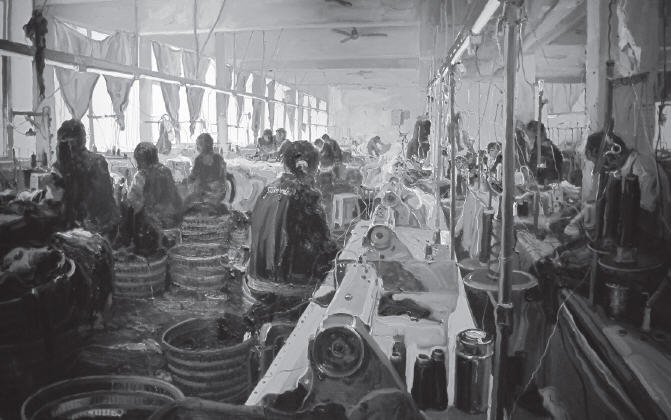History Repeats Itself

Man's activities in agriculture, mining, farming, industries, gardening, etc., were all on the same scale as they are now, even previous to the present creation, and the same activities will remain as they are, even in the next creation. After many hundreds of millions of years, one creation is started by the law of nature, and the history of the universe repeats itself practically in the same way. The mundane wranglers waste time with archaeological excavations without searching into the vital necessities of life. After getting an impetus in spiritual life, Sri Narada Muni, even though a mere child, did not waste time for a single moment with economic development, although he passed towns and villages, mines and industries. He continually went on to progressive spiritual emancipation. Srimad-Bhagavatam is the repetition of history which happened some hundreds of millions of years ago. As it is said herein, only the most important factors of history are picked up to be recorded in this transcendental literature . – Srimad-Bhagavatam 1.6.11, purport
The fruitive actors in the material world are very enthusiastic in the creation of big enterprises, big houses, big empires, big industries and so many big, big things out of the energy and ingredients supplied by the material agent of the Supreme Lord. With such resources, and at the cost of valuable energy, the conditioned soul creates, satisfies his whims, but unwillingly has to depart from all his creations and enter into another phase of life to create again and again. – Srimad-Bhagavatam 2.10.43, purport
The whole material creation is a jugglery of names only; in fact, it is nothing but a bewildering creation of matter like earth, water and fire. The buildings, furniture, cars, bungalows, mills, factories, industries, peace, war or even the highest perfection of material science, namely atomic energy and electronics, are all simply bewildering names of material elements with their concomitant reactions of the three modes. Since the devotee of the Lord knows them perfectly well, he is not interested in creating unwanted things for a situation which is not at all reality, but simply names of no more significance than the babble of sea waves. – Srimad-Bhagavatam 2.2.3, purport
Progress at the Cost of Millions

The artificial way of living depending on factories and tools can render so-called happiness only to a limited number at the cost of millions. Since the energy of the mass of people is engaged in factory production, the natural products are being hampered, and for this the mass is unhappy. Without being educated properly, the mass of people are following in the footsteps of the vested interests by exploiting natural reserves, and therefore there is acute competition between individual and individual, and nation and nation. There is no control by the trained agent of the Lord. – Srimad-Bhagavatam 1.10.5, purport
A human being must be conscious of the fact that all foodstuffs, namely grains, vegetables, milk, water, etc.the prime necessities of life-are supplied for mankind by the Lord, and such foodstuffs cannot be manufactured by any scientist or materialist in a laboratory or factory established by human effort. – Srimad-Bhagavatam 3.3.28, purport
Waste of Valuable Energy Pustakrishna:
And what will be the benefit of classifying and training people according to their own qualities and propensities?
Srila Prabhupada: The benefit will be that the whole social body will function harmoniously. The social body must have a brain and arms and a belly and legs to be complete. If there is no brain, no head, then what is the use of these arms and legs and belly? It is all dead. So in human society, if there is not a class of learned, truthful, and honest men – men with all the brahminical qualifications – then society is ruined. That is why people are perplexed. Today almost everyone is trained to be a shudra, a laborer: "Go to the factory." That's all. "Go to the factory and get money." And when the man gets some money, he immediately purchases wine and women. So if you try to make society classless, you'll produce such men-useless men, disturbing to the social body. You cannot make society classless. If you try to make it classless, naturally people will all be shudras, fourth-class men, and worse. Then there will be social chaos. – Civilization and Transcendence, Chapter 4
People who have no taste for the devotional service of the Lord are occupied in material engagements. Most of them engage during the daytime in hard physical labor; their senses are engaged very extensively in troublesome duties in the gigantic plants of heavy industrial enterprise. The owners of such factories are engaged in finding a market for their industrial products, and the laborers are engaged in extensive production involving huge mechanical arrangements. "Factory" is another name for hell. At night, hellishly engaged persons take advantage of wine and women to satisfy their tired senses, but they are not even able to have sound sleep because their various mental speculative plans constantly interrupt their sleep. Because they suffer from insomnia sometimes they feel sleepy in the morning for lack of sufficient rest. – Srimad Bhagavatam 3.9.10, purport
Early in the morning they rise and travel even a hundred miles away to earn bread. Especially in the Western countries, I have seen that people awaken at five o'clock to go to offices and factories to earn their livelihood. People in Calcutta and Bombay also do this every day. They work very hard in the office or factory, and again they spend three or four hours in transportation returning home. Then they retire at ten o'clock and again rise early in the morning to go to their offices and factories …. One should work eight hours at the most to earn his livelihood, and either in the afternoon or in the evening a householder should associate with devotees to hear about the incarnations of Krishna and His activities and thus be gradually liberated from the clutches of maya. However, instead of finding time to hear about Krishna, the householders, after working hard in offices and factories, find time to go to a restaurant or a club where instead of hearing about Krishna and His activities they are very much pleased to hear about the political activities of demons and non devotees and to enjoy sex, wine, women and meat and in this way waste their time. – Srimad-Bhagavatam 7.14.3-4, purport
Because people are in the mode of passion, they love to work very hard. That hard work is considered happiness. In London you will see everyone engaged in hard work. In the morning, all the buses and trucks travel with great speed, and people go to the office or factory from morning until late at night. They work hard, and it is called advancement of civilization. Some of them are frustrated; they don't want it. … Hogs,
Too, are working hard day and night, thinking, "Where is stool? Where is stool?"That is their business. – The Topmost Yoga System, Chapter 3
Unnecessary Necessities of Life

The basic principle of economic development is centered on land and cows. The necessities of human society are food grains, fruits, milk, minerals, clothing, wood, etc. One requires all these items to fulfill the material needs of the body. Certainly one does not require flesh and fish or iron tools and machinery …. Not only do regulated rains help ample production of grains and fruits, but when they combine with astronomical influences there is ample production of valuable stones and pearls. Grains and vegetables can sumptuously feed a man and animals, and a fatty cow delivers enough milk to supply a man sumptuously with vigor and vitality. If there is enough milk, enough grain, enough fruit, enough cotton, enough silk and enough jewels, then why do people need economic development in the shape of tools and machines? Can tools and machines supply vigor and vitality to men and animals? Can machinery produce grain, fruit and milk, or jewels and silk? Are jewels and silk, along with varieties of foodstuffs prepared with ghee, grain, milk and fruits, not sufficient for man's pure, luxurious and healthy life? Then what is the need of an artificial luxurious life of cinemas, cars, radio, flesh and hotels? Has this civilization produced anything more than the doggish mentality of quarreling individually and nationally? Has this civilization enhanced the cause of equality and fraternity by sending thousands of men into a hellish factory and the war fields at the whims of a particular man? – Srimad-Bhagavatam 1.10.4, purport
It is by ignorance that people think that by opening factories they will be happy. Why should they open factories? There is no need. There is so much land, and one can produce one's own food grains and eat sumptuously without any factory. Milk is also available without a factory. The factory cannot produce milk or grains. The present scarcity of food in the world is largely due to such factories. When everyone is working in the city to produce nuts and bolts, who will produce food grains? Simple living and high thinking is the solution to economic problems. – Teachings of Queen Kunti, Chapter 18
Performing All Endeavors for Krishna
A person who is actually in devotional service must be engaged in all kinds of activities-those prescribed in the revealed scriptures and also those which are accepted for livelihood. In other words, not only should a devotee engage himself in the prescribed duties of devotional service which are mentioned in the revealed scriptures, but he should also perform the duties of his practical life in Krishna consciousness. For example, a devotee who has a great establishment or factory may offer the fruits of such a material possession for the service of the Lord. – Nectar of Devotion, Chapter 11
One should act without attachment for the result; he should be disassociated from the modes of work. A man working in Krishna consciousness in a factory does not associate himself with the work of the factory, nor with the workers of the factory. He simply works for Krishna, And when he gives up the result for Krishna, he is acting transcendentally. – Bhagavad-gita 18.9, purport
Nowadays, therefore, because we are in a time of economic prosperity, no one is interested in going to the churches or temples. "What is this nonsense?" people think. "Why should I go to the church to ask for bread? We shall develop our economic condition, and then there will be a sufficient supply of bread." In Communist countries this mentality is especially prevalent. The Communists make propaganda in the villages by asking people to go to church and pray for bread. So the innocent people pray as usual, "0 God, give us our daily bread." When the people come out of the church, the Communists ask, "Have you gotten bread?"
"No, sir," they reply.
"All right," the Communists say.
"Ask us."
Then the people say, "0 Communist friends, give us bread."
The Communist friends, of course, have brought a whole truckload of bread, and they say, "Take as much as you like. Now, who is better-the Communists or your God?"
Because the people are not very intelligent, they reply, "Oh, you are better." They don't have the intelligence to inquire, "You rascals, where from have you brought this bread? Have you manufactured it in your factory? Can your factory manufacture grains?" Because they are shudras (people who have very little intelligence), they don't ask these questions. – Teachings of Queen Kunti, Chapter 9
